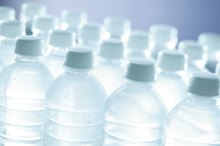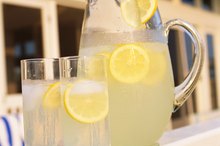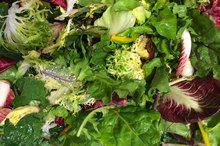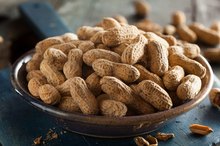Gatorade G2 Ingredients
Gatorade G2 is a reduced-calorie electrolyte replacement, or sports drink, made by the Pepsi-Cola Company. Each 12-oz. bottle contains 40 calories and 10g of carbohydrates for energy in the form of sugars. The beverage is available in three flavors: orange, strawberry kiwi and grape. The beverage contains no caffeine, protein, fat, calcium or iron.
Water
Water is the first ingredient on the G2 ingredient list, constituting the majority of the beverage. Water is the main component of a number of beverages.
Sugars and Sweeteners
Nutrition Facts of Dasani Water
Learn More
Gatorade G2 contains the following sugars and sweeteners: high fructose corn syrup, sucrose syrup, sucralose and acesulfame potassium. Sucralose is more commonly known by the brand name Splenda. Acesulfame potassium is an artificial sweetener which also provides potassium.
Vitamins and Minerals
According to the ingredient list, Gatorade G2 contains the following vitamins and minerals: ascorbic acid or vitamin C, niacinamide or vitamin B3, calcium pantothenate or vitamin B5, pyridoxine hydrochloride or vitamin B6 and alpha tocopherol acetate or vitamin E. Monopotassium phosphate is a source of potassium, an emulsifier and helps buffer the pH of the beverage. Gatorade 2 contains two sources of salt: salt and sodium citrate. Sodium citrate also adds a tart, slightly salty flavor to the beverage.
Flavorings
Club Soda Nutrition
Learn More
Citric acid provides a tart flavor and functions as a preservative. G2 orange and strawberry kiwi flavors contain “natural flavor.” G2 grape flavor contains “natural and artificial flavor.”
Preservative and Emulsifier
Calcium disodium EDTA helps preserve color and flavor. Polysorbate 20 is an emulsifier.
Coloring
G2 orange and strawberry kiwi flavors contain yellow 5 and red 40. G2 grape flavor contains red 40 and blue 1.
Related Articles
References
- Gatorage G2 Website
- Potera C. Diet and nutrition: The artificial food dye blues. Environ Health Perspect. 2010;118(10). doi:10.1289/ehp.118-a428
- Color Additives Questions and Answers for Consumers. Food and Drug Administration. Updated January 4, 2018.
- Malik VS, Popkin BM, Bray GA, Després JP, Hu FB. Sugar-sweetened beverages, obesity, type 2 diabetes mellitus, and cardiovascular disease risk. Circulation. 2010;121(11):1356-1364. doi:10.1161/CIRCULATIONAHA.109.876185
- Cordrey K, Keim SA, Milanaik R, Adesman A. Adolescent consumption of sports drinks. Pediatrics. 2018;141(6). doi:10.1542/peds.2017-2784
- Pearlman M, Obert J, Casey L. The association between artificial sweeteners and obesity. Curr Gastroenterol Rep. 2017;19(12). doi:10.1007/s11894-017-0602-9
- Health Effects of Sugary Drinks. Boston Public Health Commission.
- Sports Drinks. Harvard T.H. Chan School of Public Health.
- Cordrey K, Keim SA, Milanaik R, Adesman A. Adolescent consumption of sports drinks. Pediatrics. 2018;141(6). doi:10.1542/peds.2017-2784
- Field A, Sonneville K, Falbe J, Flint A, Haines J, Rosner B, Camargo C. Association of sports drinks with weight gain among adolescents and young adults. Obesity, 22(10), pp.2238-2243. doi:10.1002/oby.20845
- Story M, Klein L. Consumption of Sports Drinks by Children and Adolescents. An Issue Brief. Healthy Eating Research. Published June 2012.
- Trasande L, Shaffer R, Sathyanarayana S. Food additives and child health. Pediatrics. 2018;142(2):e20181408. doi:10.1542/peds.2018-1408
Writer Bio
Stephanie Crumley Hill is a childbirth educator who for more than 20 years has written professionally about pregnancy, family and a variety of health and medical topics. A former print magazine editor, her insurance articles for “Resource” magazine garnered numerous awards. She holds a Bachelor of Arts in English from the University of Georgia.









